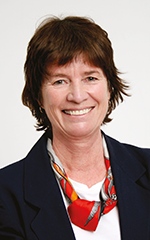

When we took a look at quantum computing this time last year it seemed a bit like an idea for the future – more sci-fi than reality. Only a year later there have been huge breakthroughs in hardware, error correction and potential commercial applications. For example, Google announced in December that its new quantum chip called Willow had completed a complex calculation in five minutes that would take today’s supercomputers billions of years to execute − 10 septillion years to be more specific – or 24 zeros. Google says that this would take a classical computer more time than the history of the universe.
Quantum is a seismic shift in how we process information. Unlike classical computers, which process information in bits, either a 0 or 1, quantum computers use qubits. These are subatomic particles that can exist in many different states at once. Imagine a coin spinning in midair that can be a one or zero simultaneously, or any state in between. This is called superposition and enables quantum computers to evaluate millions of possibilities at once, and solve problems that would overwhelm our systems today.
Qubits also have a property called entanglement. One qubit’s state instantly affects another, no matter the distance. This allows them to run coordinated calculations, boosting their processing power exponentially. For example to solve a maze a regular computer would test paths one by one. A quantum computer explores them all at once; and when searching for a needle in a haystack it would scan the whole haystack in an instant. Errors are one of the greatest challenges since qubits are very sensitive to noise, which can randomly flip their values and cause errors. Until now, the more qubits you had, the more errors would occur. Google’s Willow processor is a game-changer in error correction and qubit stability. It can reduce errors exponentially as more quibits are used.
Cooling is another hurdle. Quantum computers need a temperature near absolute zero to work reliably – although today’s NMR machines can already do this. Now researchers in Sweden have developed a new refrigerator that autonomously cools qubits to extreme lows, making cooling more practical. We have a story about this in our online newsbrief.
The stakes are high and the potential industrial uses are almost boundless. With quantum you could design cars or planes in months instead of years, as Boeing is doing, and simulate chemical reactions to accelerate drug discovery. You could predict weather patterns more accurately, transform supply chain management by predicting and resolving bottlenecks immediately, and optimise urban and air traffic flow by rescheduling flights after a disruption − a logistical nightmare for our normal computers.
Banks would benefit hugely from tracking transactions and identifying patterns, for example to pick up money laundering. Crypto currencies and blockchain transactions would get a huge boost. All the major banks already have dedicated quantum teams exploring the possibilities.
But it’s a double-edged sword. Quantum’s ability to process data at unprecedented speed is also a serious threat to our current encryption standards like RSA and ECC, which protect financial transactions, private communications and national security. While these encryption methods are nearly unbreakable with classical systems, a quantum computer could break them in hours. There are also serious concerns that criminals will ‘collect now, break later’, and stockpile encrypted data to decrypt at a later stage with quantum systems. This threat has set off a parallel race to develop quantum-resistant encryption methods, known as post-quantum cryptography (PQC). Governments and industries are investing heavily in these technologies, preparing for when quantum decryption is a reality.
This has been an extraordinary time for both quantum computing and AI. The two fields are complementary. Quantum systems can enhance AI through large-language training and solving complex optimisation problems. While AI has progressed faster than theory can keep up, quantum computing faces the opposite challenge. Practical implementation is lagging behind the theory, but the gap is closing. This convergence is driving unprecedented advancements and is reaching a tipping point.
To me it feels like we were almost ambushed by AI, and who knows where quantum will be in another year? A year ago it was a distant vision, now its a fast-approaching reality that will redefine technology in ways we are only beginning to understand. According to Hyperion Research, quantum computing is just three to four years away from delivering real value to industries. Compared to septillions of years, it’s just round the corner.
| Tel: | +27 11 543 5800 |
| Email: | [email protected] |
| www: | www.technews.co.za |
| Articles: | More information and articles about Technews Publishing (SA Instrumentation & Control) |

© Technews Publishing (Pty) Ltd | All Rights Reserved